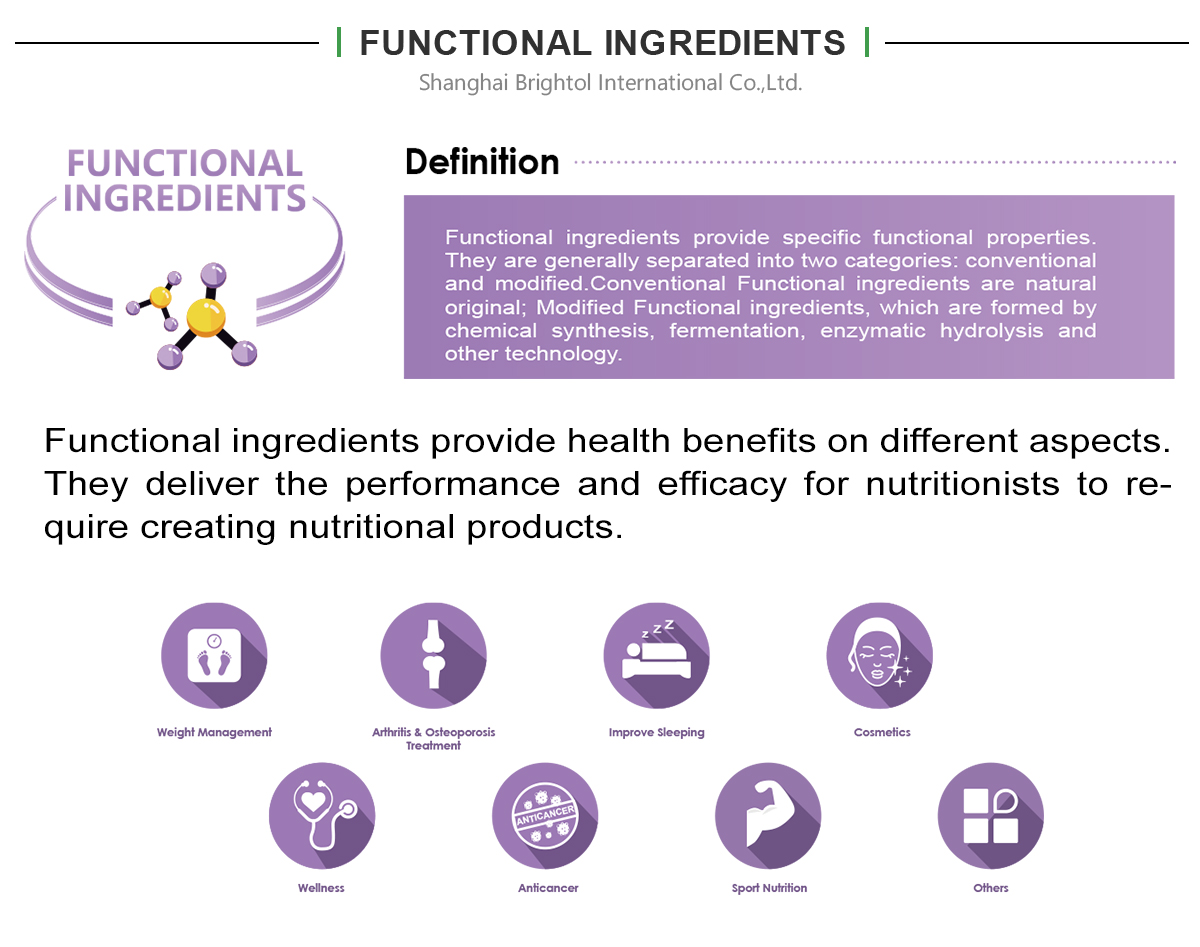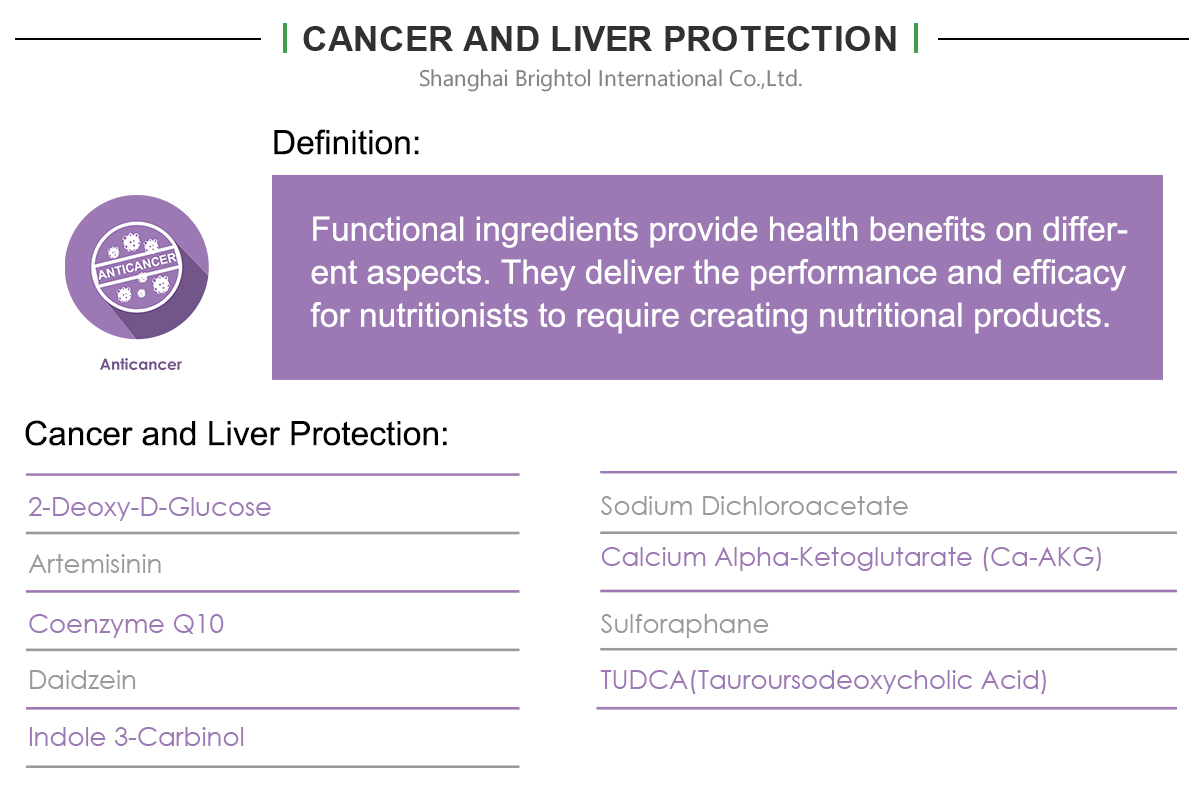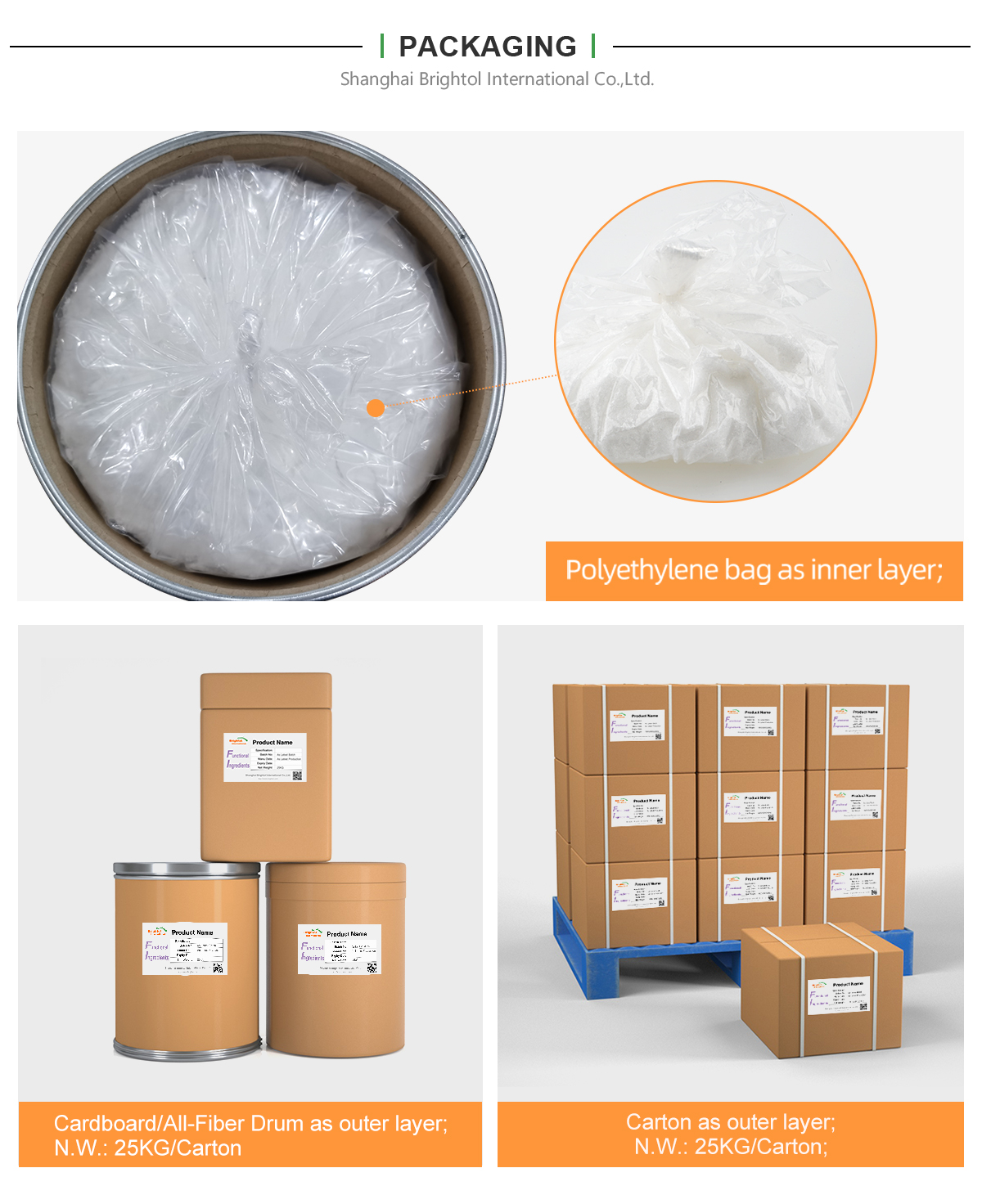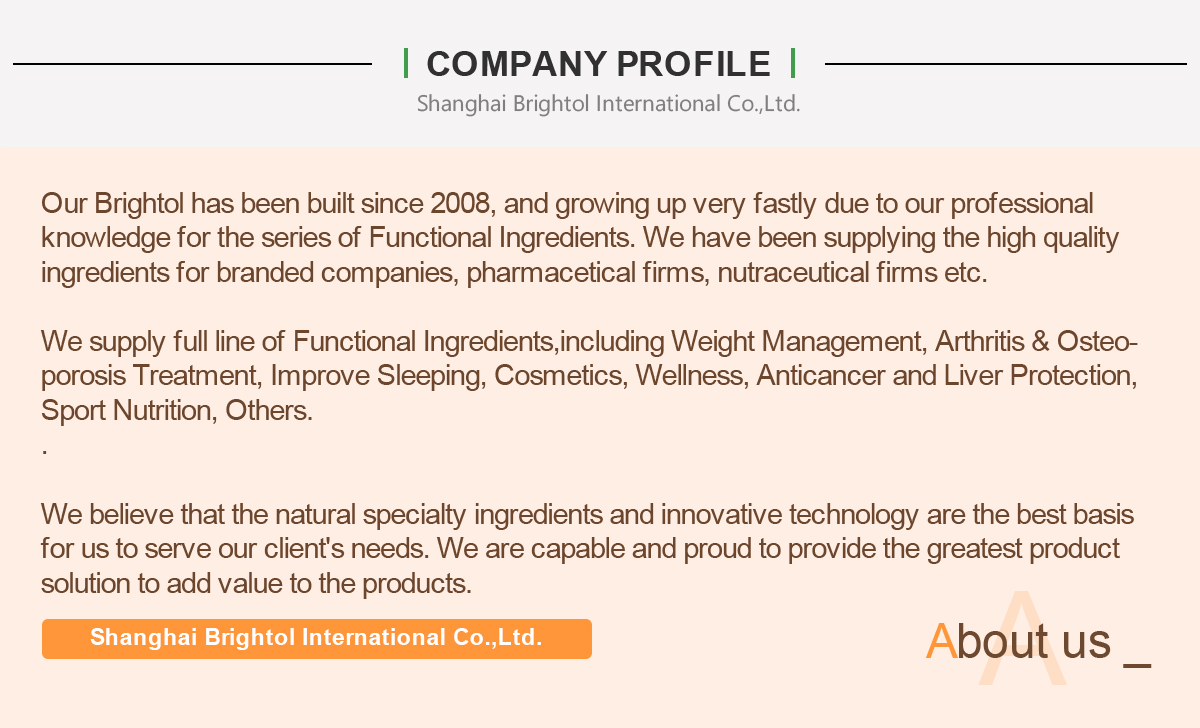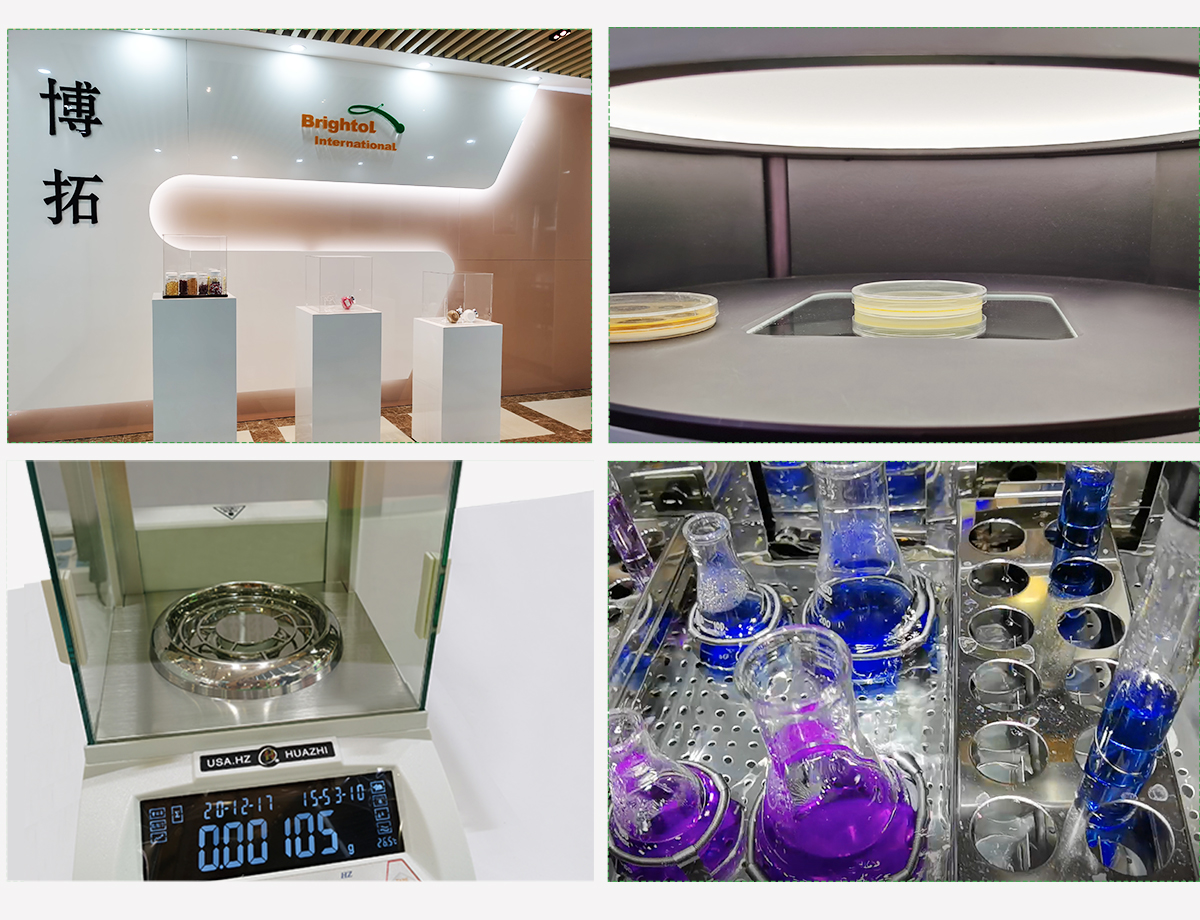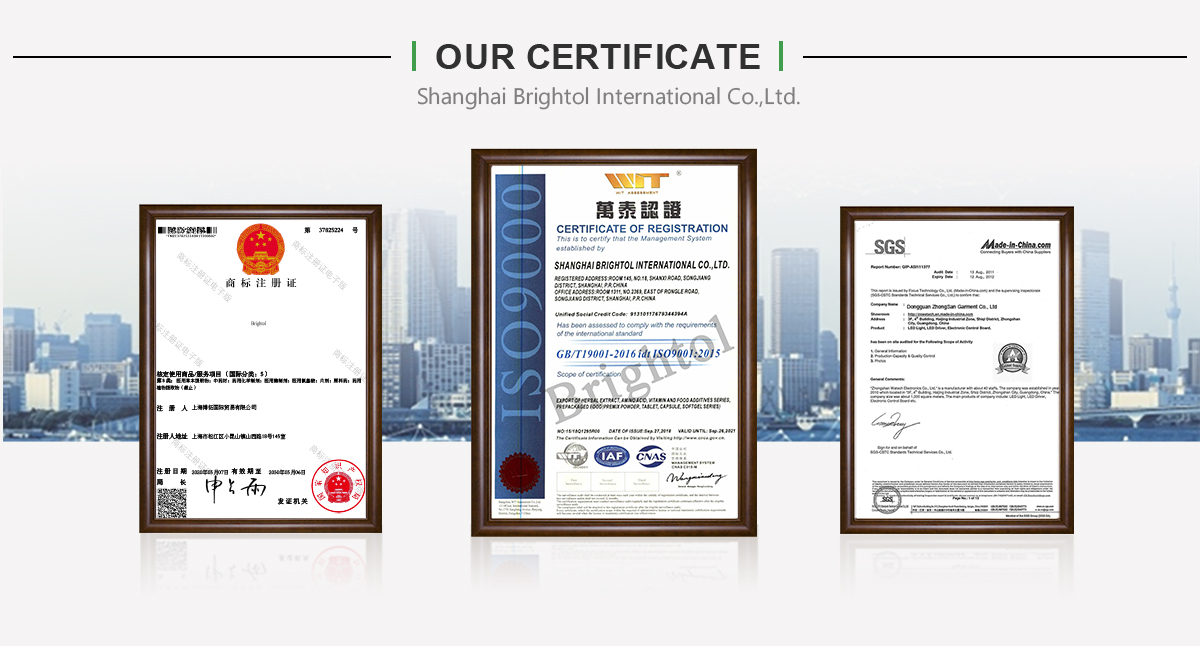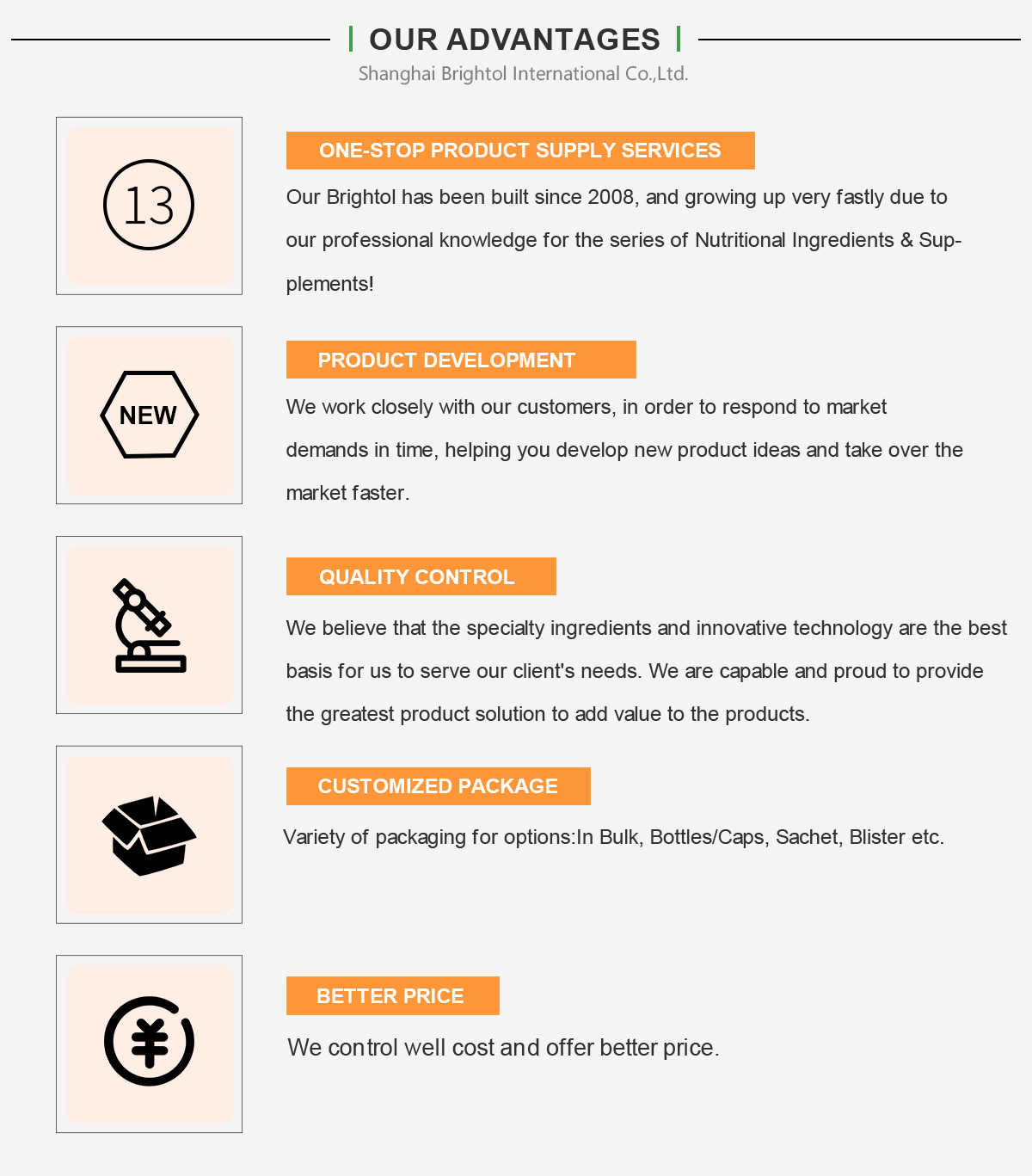

Product Name: Daidzein
Synonyms: 4',7-Dihydroxyisoflavone; 7-Hydroxy-3-(4-hydroxy-phenyl)-chromone; 7-Hydroxy-3-(4-hydroxy-phenyl)-4H-1-benzo-pyran-4-one
Molecular Formula: C15H10O4
Molecular Weight: 254.24
CAS No.: 486-66-8
EINECS: 207-635-4
Description:
Daidzein is an isoflavone, which is a hormone-like substance found in soybeans. Daidzein is the second most plentiful isoflavone in soy, after genistein. Numerous studies have shown that, like genistein, daidzein is both a phytoestrogen and antioxidant, and it is most often used to treat conditions affected by an estrogen levels in the body......
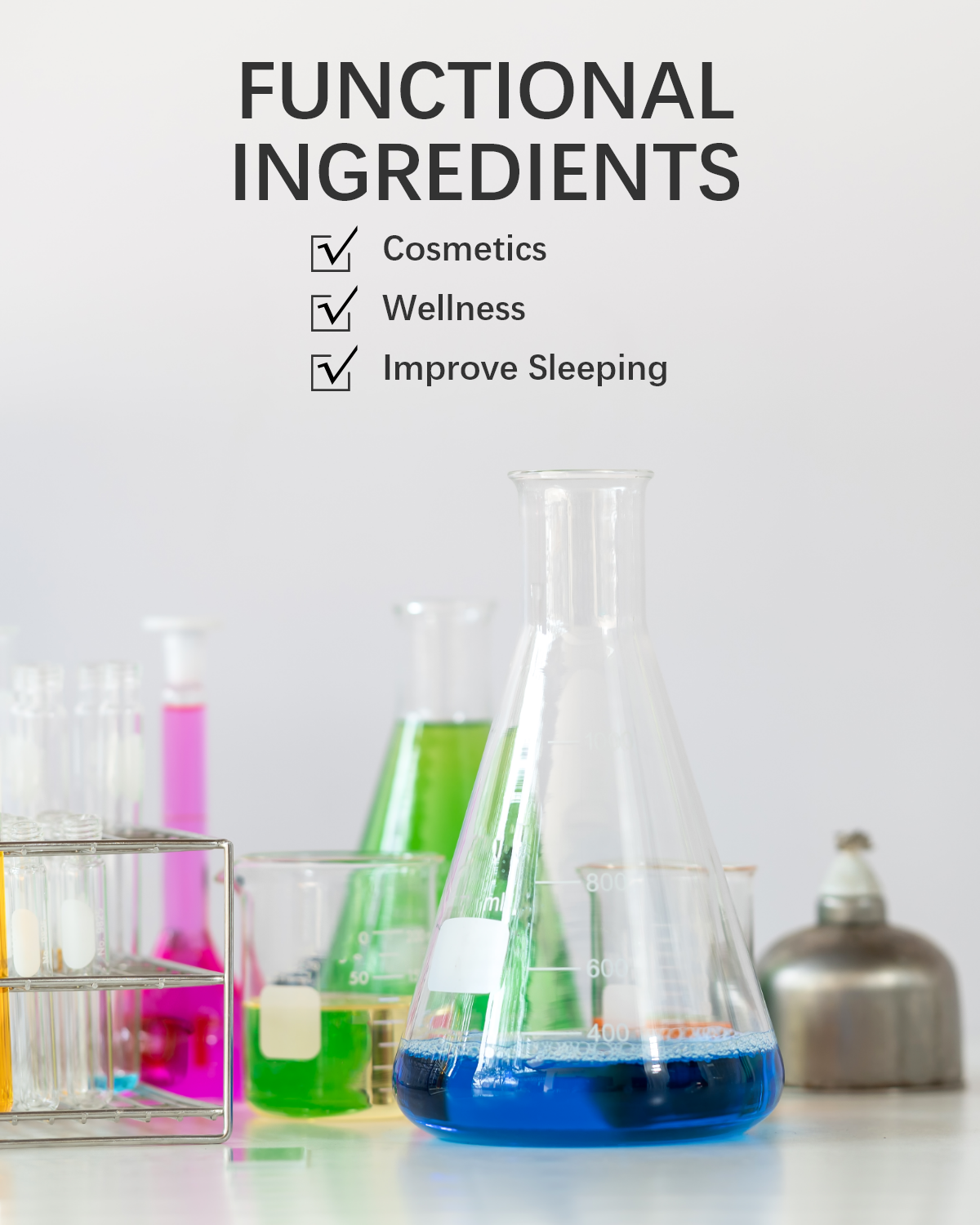

Product Name: Daidzein
Synonyms: 4',7-Dihydroxyisoflavone; 7-Hydroxy-3-(4-hydroxy-phenyl)-chromone; 7-Hydroxy-3-(4-hydroxy-phenyl)-4H-1-benzo-pyran-4-one
Molecular Formula: C15H10O4
Molecular Weight: 254.24
CAS No.: 486-66-8
EINECS: 207-635-4
Description:
Daidzein is an isoflavone, which is a hormone-like substance found in soybeans. Daidzein is the second most plentiful isoflavone in soy, after genistein. Numerous studies have shown that, like genistein, daidzein is both a phytoestrogen and antioxidant, and it is most often used to treat conditions affected by an estrogen levels in the body.
Daidzein inhibits the growth of cancer by taking the place of estrogen on receptors in cancerous cells that need estrogen to grow. Daidzein also inhibits the growth of tumors by forcing cells to differentiate normally, rather than the wild, exponential cell growth seen in tumor cells. Daidzein has been shown to be especially effecting in checking the growth of leukemia cells and melanoma cells.
As a phytoestrogen, daidzein mimics the effects of estrogen in the body, and may be a useful treatment for conditions caused or worsened by declining estrogen levels during menopause, including osteoporosis and increased risk of heart disease. Soy isoflavones have demonstrated an ability to lower low-density lipoprotein (LDL, or “bad”) cholesterol levels, and to help prevent plaque build-up in the arteries. It has also been suggested that soy isoflavones may be useful for treatment of Alzheimer’s disease by preventing a build-up of plaque in blood vessels in the brain.
Benefits:
1. Winning the Battle against Aging
2. Mitigating Menopausal Bone Loss
3. Improving Cardiovascular Health
4. Fighting Back Against Hot Flashes
